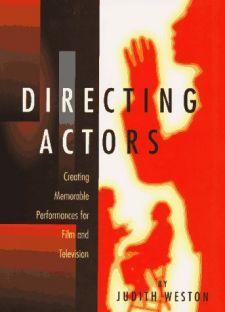Hey,
I had made an account here a month or so ago but due to being busy(and procrastinating) never got around to posting. I have so many things to learn, so much to ask and share.
I am already assisting on TV shows here in my home country and would be making my own feature pretty soon. I have a scriptwriting degree from Canada and someday I want to produce my own content. I like to believe that I have a good enough knowledge on all aspects of cinema.
My one major problem while assisting on big shows, and when I made my own short was.....what to tell actors?
I observe in feature films how everything comes together-the slightest nuances, the gestures, the feel. While directing I had a lot of problem convincing my thoughts to the actors and it showed in the final reel. They have their own style....and in television(at least here in India) its theatrical-over the top. I much prefer subtlety and grace. In fact I sometimes feel like only I would want to act out certain roles that I really want people to see,because the other actor will never understand.
How do you sit with actors and tell them this is what I want. This is where you look on the other side, this is where you pause. I let them improvise.
I had made an account here a month or so ago but due to being busy(and procrastinating) never got around to posting. I have so many things to learn, so much to ask and share.
I am already assisting on TV shows here in my home country and would be making my own feature pretty soon. I have a scriptwriting degree from Canada and someday I want to produce my own content. I like to believe that I have a good enough knowledge on all aspects of cinema.
My one major problem while assisting on big shows, and when I made my own short was.....what to tell actors?
I observe in feature films how everything comes together-the slightest nuances, the gestures, the feel. While directing I had a lot of problem convincing my thoughts to the actors and it showed in the final reel. They have their own style....and in television(at least here in India) its theatrical-over the top. I much prefer subtlety and grace. In fact I sometimes feel like only I would want to act out certain roles that I really want people to see,because the other actor will never understand.
How do you sit with actors and tell them this is what I want. This is where you look on the other side, this is where you pause. I let them improvise.


